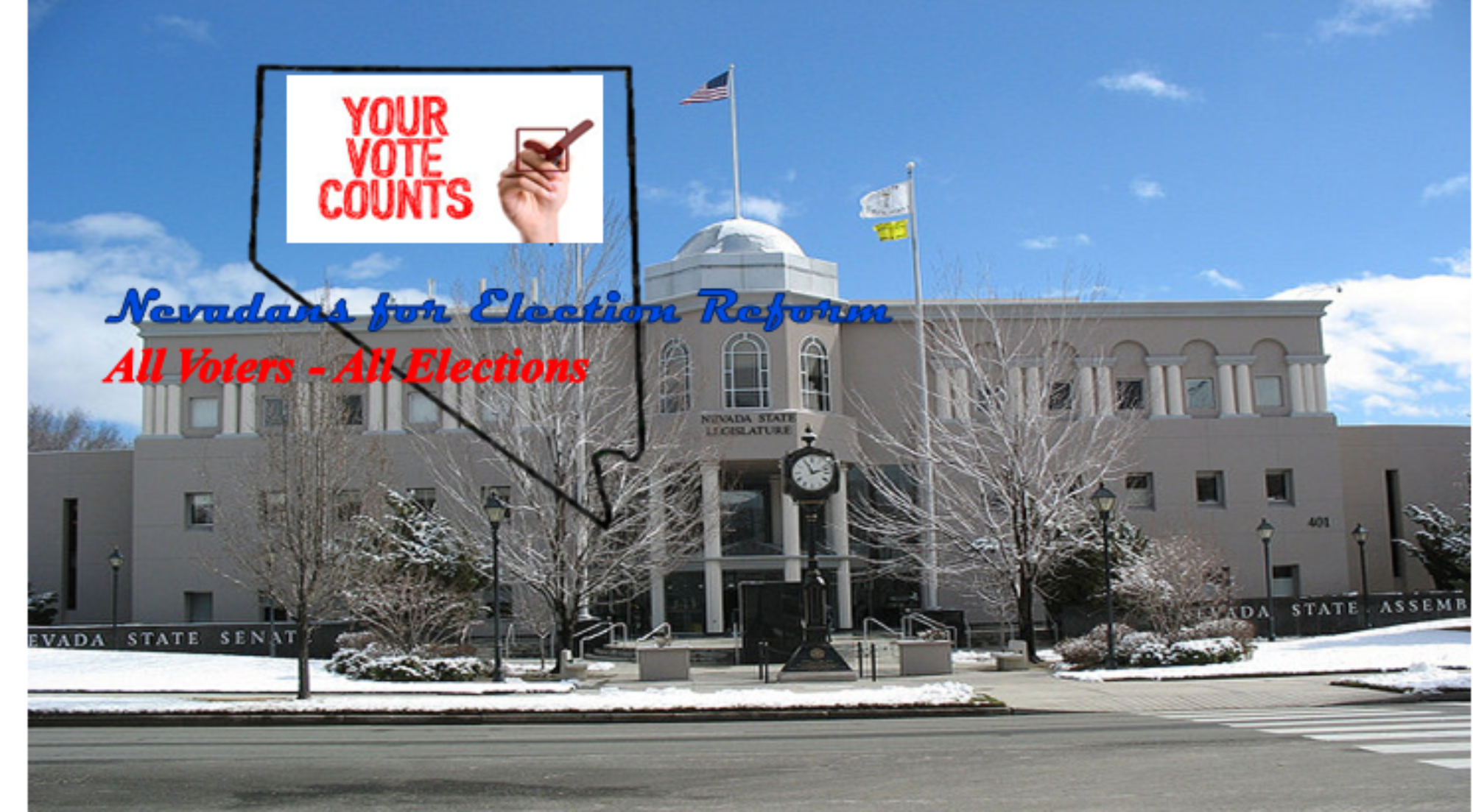By Doug Goodman -Founder & Executive Director Nevadans for Election Reform
Over 900,000 Nevadans cast ballots during the general election of 2018; 62 percent of active registered voters. While the Democratic Party is claiming their voter outreach efforts led to victory and the Republican Party is trying to figure out what went wrong; some party leaders are going as far as to claim voter fraud, the outcome of the election, either margin of victory or determining which candidate won, clearly was dependent on the votes of the Non-Partisan voter.
There’s no question that Democratic voters learned their lesson from 2014 when state-wide turnout was only 45.5 percent and the Republican party won all state constitutional offices along with control of both houses of the state legislature. This time, Democratic candidates won all but one constitutional office and the party extended its majority earned in 2016 in both chambers of the legislature; a veto-proof majority in the assembly
Turnout is a major factor in the outcome of any election. However, with both the Democratic and Republican Party each holding less than 40 percent share of active voters (38.32 and 33.52 percent respectively) it is the 28.15 percent (21.91 percent Non-Partisan and 6.24 percent minor party), not registered to either major party that determined the outcome of many races. This is important not only because both the Democratic and Republican Party, with very minor exception, lose voter share each month while Non-Partisan voter share increases but also because voters passed Automatic Voter Registration (AVR). Because voters are automatically registered as Non-Partisan unless they specify a political party, the percentage of Non-Partisan voters will most likely increase, perhaps significantly.
In 16 races, Non-Partisan voters clearly determined the winner
| Position |
Winner |
Difference in Party Registration |
Percent Non-Partisan |
Margin of Victory |
Percent vote over Party Registration |
| Secretary of State |
R |
D +4.8% |
21.9% |
0.65% |
R: 15.4%
D: 10% |
| Treasurer: |
D |
D +4.8% |
21.9% |
0.64% |
D: 9.3%
R: 13.4% |
| Attorney General: |
D |
D +4.8% |
21.9% |
0.48% |
D: 8.9%
R: 13.2% |
| Position |
Winner |
Difference in Party Registration |
Percent Non-Partisan |
Margin of Victory |
Percent vote over Party Registration |
| Congressional District 3 |
D |
D +1.6% |
22.8% |
9.01% |
D: 15.4%
R: 8% |
| State Senate District 8 |
D |
D +1% |
21.9% |
3.18% |
D: 15.9%
R: 12.7% |
| State Senate District 20 |
R |
R +0.58% |
22.4% |
3.18% |
D: 15.9%
R: 12.7% |
| State Assembly District 2: |
R |
R +4.47% |
22% |
3.84% |
R: 13.5%
D: 14.1% |
| State Assembly District 4: |
D |
R +0.07% |
21.5% |
0.38% |
D: 12.8%
R: 12.4% |
| State Assembly District 12: |
D |
D +13.84% |
22.2% |
10.93% |
D: 10.8%
R: 13.7% |
| State Assembly District 31: |
D |
R +5.79% |
19.7% |
3.8% |
D 18.1%
R: 8.5% |
| State Assembly District 37 |
D |
D +0.6% |
20.4% |
0.42% |
D: 12.9%
R: 13.1% |
In Washoe County, all partisan county-wide races were determined by Non-Partisan. In the county, the Republican Party holds a 1.93 percent advantage over the Democratic Party (37.05% to 35.12%) Non-Partisan has 20.96% voter share, minor parties 6.87 (27.83 percent not affiliated with either major party. Important to note that even though Washoe County voted more Democratic, for county-wide offices, Non-Partisans went more for Republican incumbents
| Position |
Winner |
Difference in Party Registration |
Percent Non-Partisan |
Margin of Victory |
Percent vote over Party Registration |
| Assessor: |
R |
R +1.93% |
21% |
0.30% |
R: 13.1%
D: 14.7% |
| Public Administrator: |
R |
R +1.93% |
21% |
5.7% |
R: 15.8%
D: 12% |
| Recorder: |
D |
R +1.93% |
21% |
4.06% |
D: 16.9%
R: 10.9% |
| Treasurer: |
R |
R +1.93% |
21% |
5.6% |
R: 15.7%
D: 12% |
| Clerk: |
R |
R +1.93% |
21% |
10.7% |
R: 18.3%
D: 9.5% |
In most other races, the Non-Partisan vote did not materially impact the outcome of the race. In those races, the Non-Partisan vote either slightly decreased the margin of victory but well within the winning party registration advantage or increased the margin of victory.
What made Non-Partisans favor the Democratic candidates this election? Was their vote a vote against President Trump? Did the Democratic Party do a better job of addressing the issues that they consider important? Was it a reaction to the lack of specifics in the campaigns? It could be these or other things. The one thing I believe is certain, the Democratic Party can not assume Non-Partisan voters will always be in their corner.
